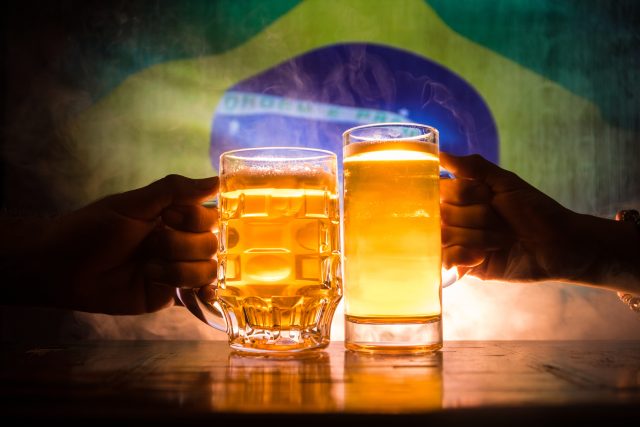This website uses cookies so that we can provide you with the best user experience possible. Cookie information is stored in your browser and performs functions such as recognising you when you return to our website and helping our team to understand which sections of the website you find most interesting and useful.
Why Brazil’s beer scene focuses on sessionability
Brazilian brewery Flamingo Beer has lifted the lid on why the country has such a penchant for lagers. Jessica Mason finds out why.

The reasoning, which showed that this was largely based on the fact that beer is often consumed during social gatherings, can be attributed to the cultural significance of beer in Brazilian society, as well as its affordability compared to other alcoholic drinks. Additionally, Brazil’s warm climate makes beer a refreshing choice for the majority of drinkers leading to higher consumption rates.
Speaking exclusively to the drinks business, Flamingo Beer CEO and founder Rafael Adour unveiled why lager was primarily a core style in Brazil.
Adour told db: “It’s the heat” and went on to explain how beer styles that were refreshing and crisp were often enjoyed as an antidote to a hot day in the Brazilian sunshine.
He insisted: “People are looking for easy drinkability” and something that tastes “fresh and accessible”. In Brazil, it’s very hot, so we look for sessionability.”
Echoing this, a recent Statista survey outlined how one of the key drinks trends in the Brazilian beer market has been down to the growing number of microbreweries.
This year, revenue generated from beer, across Brazilian supermarkets and convenience stores as well as restaurants and bars stood at approximately US$49.3 billion and will amount to 15.8 billion litres.
Another trend being recognised is the increasing popularity of low-alcohol and non-alcoholic beers, driven by health-conscious consumers seeking alternatives.
Adour confirmed that Flamingo Beer’s next beer will be an alcohol-free offering and insisted that “lager with no alcohol is just a classic fusion”.
In a beer-assessing survey two years ago, countries were listed for their beer appreciation and Brazil came in third place with 151,900,000 hl of beer being produced, just behind China and the US and its domestic market is huge.
The IWSR also noted that Brazilian brewers’ resilience can be attributed to a “successful pivot to digital [ecommerce] and DTC [direct-to-consumer]” sales when the time was right.
Related news
Fugitive tycoon Vijay Mallya challenges Indian authorities over £700m asset seizures

